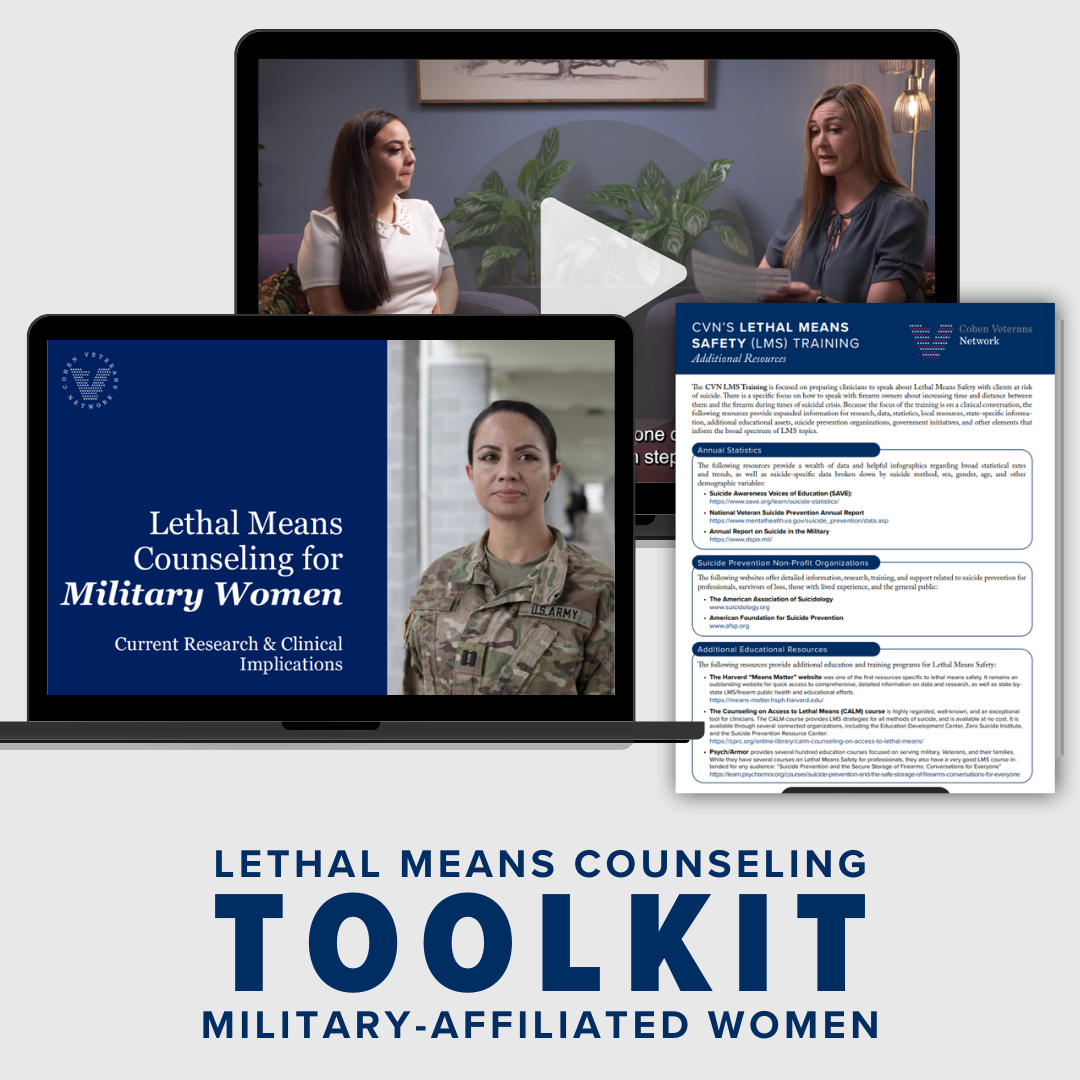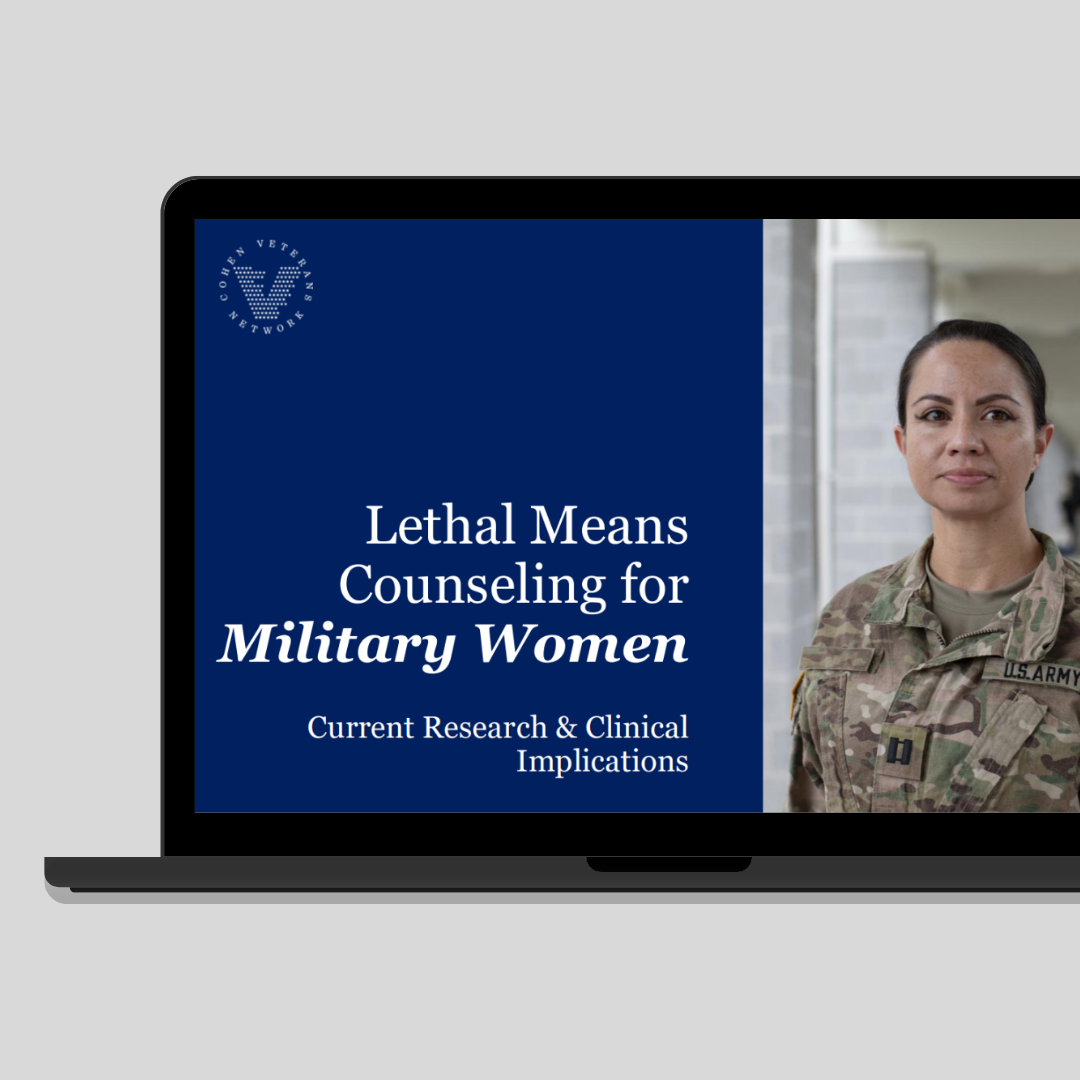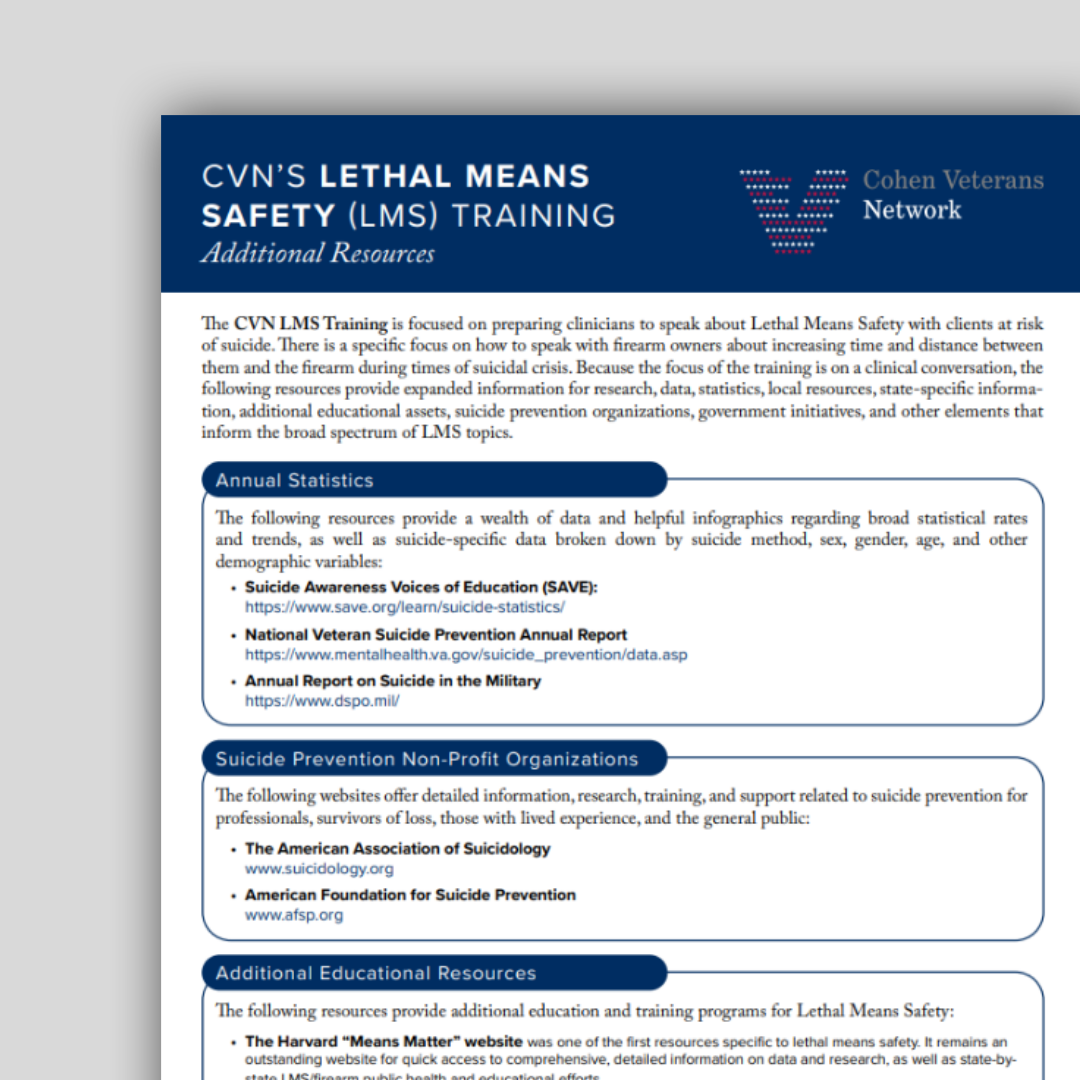
This Lethal Means Counseling Toolkit is designed to provide essential tools and training to support clinicians working with military-affiliated women (women veterans and service members). Developed by Cohen Veterans Network, informed by cutting-edge research, and supported by Face the Fight, every resource here is tailored to help advance your practice and prevent suicide.
According to the Department of Veterans Affairs, suicide is the second leading cause of death among veteran women aged 18-34, with women veterans more likely to attempt suicide than non-veteran women. Firearms remain the most common means of suicide for this population.
Recognizing these challenges, this toolkit was created to empower mental health professionals with the necessary knowledge and tools to integrate Lethal Means Counseling into their clinical approaches with military women. By addressing the gender-specific needs of veterans and service members, together, we can save lives and create a culture of safety and support.
The Lethal Means Counseling Toolkit was created as a result of the comprehensive Gap Analysis conducted by the CVN Institute for Quality (CVN-IQ). This pivotal research identified critical gaps in addressing the unique suicide prevention needs of military-affiliated women, offering actionable insights that informed every aspect of the toolkit’s design. By integrating these findings, the toolkit provides gender-informed, evidence-based guidance to empower clinicians and improve care. For a deeper understanding of the analysis and its role in shaping this resource, access the full Gap Analysis document here.
What’s Included in This Toolkit:
Training Module
Lethal Means Safety Counseling for Military-Affiliated Women Training Module, specifically addressing cultural and gender-sensitive practices in this field.
Download Training Module
Resources Handout
Handout with extra resources including research, statistics, state-specific information, educational materials, suicide prevention organizations, government initiatives, and other key Lethal Means Safety topics.
Download Resources
Video Trainings
Video Trainings with Discussion Prompts: Below, watch 4 exclusive mock client video interactions, paired with guided questions to enhance learner engagement.
Watch Videos

The below videos are demonstrations of lethal means safety conversations. All actors are clinicians, and the conversations are unscripted and meant to reflect the complexities of real-life conversations with clients. These videos are best used in conjunction with or after the full lethal means safety training. Discussion questions are available to prompt critical thinking while engaging in the videos.
Lethal Means Safety: Woman Veteran
A lethal means safety conversation about firearms where the client, a veteran woman, is open to the process.
Discussion prompts:
- What therapeutic skills did you observe?
- What additional points would you want to clarify with the client?
Lethal Means Safety: Firearm Access Not Ownership
A lethal means safety conversation about a firearm owned by the client’s husband; the client is reluctant.
Discussion prompts:
- Where did the therapist run into resistance? How would you handle it?
- What are other avenues for lethal means safety can the therapist explore with this client?
- As the therapist, what would you do next?
Lethal Means Safety: Medication
A lethal means safety conversation where medications are the potential means for suicide.
Discussion prompts:
- What strategies does the client decide on in the session?
- As the therapist, what would you do next?
Lethal Means Safety: Vehicle
A lethal means safety conversation where a vehicle is the potential means for suicide (i.e., driving off the road).
Discussion prompts:
- What challenges did the therapist experience in this conversation?
- How would you have handled this conversation as the therapist? What would you do the same? What would you do different?
Interested in learning more about Lethal Means Counseling?
Complete our on-demand training: From Hesitation to Help: A Collaborative Approach to Lethal Means Safety Conversations in Clinical Practice.
This training is available at no cost and with the opportunity to earn CEs approved by APA and ASWB.

